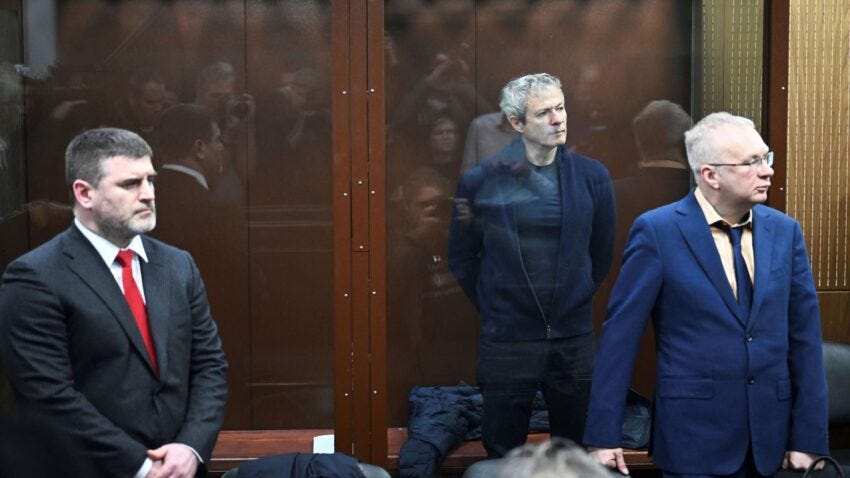When Hamas launched its ferocious attack in Israel on Oct. 7, 2023, few would have predicted that the massacres it carried out on what became the deadliest day for Jews since the end of the Holocaust, would lead to a wholesale transformation of the Middle East. Subsequent, related operations have crippled Hezbollah, giving Lebanon a chance at a new dawn, facilitating the collapse of the decades’-old Syrian dictatorship, and seriously eroding Iran’s power and prestige.
Despite the successes, Israel’s conduct of the war in Gaza -- a territory that lies in ruins, with tens of thousands dead and unspeakable suffering -- remains deeply controversial, including among Israel supporters who affirm that Israel has every right to defend itself.
Looking at Israel’s strategy and tactics, Gen. David Petraeus (ret), one of the most acclaimed minds in the U.S. military in recent decades, argues that Israel has followed the wrong course against Hamas.
Gaza, he maintains, will remain very dangerous for the foreseeable future because of a fundamental error in Israel’s approach to the conflict.
Now working at the investment firm KKR, Petraeus has been making the case at a variety of events, from the Aspen Ideas Festival to the Council for the United States and Italy, from books to newspaper columns, that Israel is repeating the mistakes the U.S. made in its post-9/11 wars.
Once hailed as the potential savior of Iraq -- to his consternation -- Petraeus became an evangelist for counterinsurgency tactics, or COIN. He literally wrote the book on COIN, penning the Marine Counterinsurgency Field Manual, whose dusty, dogeared copies were carried in rucksacks by U.S. forces in Afghanistan.
The primary problem, in his view, is that Israel is waging a counter-terrorism campaign when it should pursue a counterinsurgency one. The minute Israel leaves, he says with remarkable certainty, Hamas will come back. And that, he maintains, will be true even if Gaza is governed by a technocratic corps led by the United Arab Emirates, Egypt, the Palestinian Authority or anyone else.
Hamas will return, over and over, he predicts, and Israel will have to reenter Gaza to fight Hamas, however much of it remains, time and time again.
Petraeus is clearly an admirer of Israel, heaping high praise over its recent operations against Hezbollah and Iran. He predicts that after the October 7 catastrophe, Israel will never allow a serious threat to develop in the region, much less on its border.
When it comes to Gaza, however, he underscores that Israel has not met any of its three stated objectives: destroying Hamas, keeping it from governing again, and getting the hostages back. It should have added a fourth objective, he argues: providing a better future for the Palestinian people in Gaza.
To achieve that goal, and further the others, the tactics should have been different.
Instead of the counter-terror method of clearing an area of enemy fighters and withdrawing, it should have opted for the COIN alternative. Rather than “clear and leave,” “clear, hold and build.”
Israel, he explains, should have swept from north to south, rooting out Hamas in small sectors. Then, once rid of Hamas, developing “gated communities,” with civilians granted biometric identification passes into that single-entrance Hamas-free area. There, humanitarian assistance would be provided, including food, medical supplies, and other services offered in safety.
In a column in the Times of London, the former general recognizes that Israel’s challenges in Gaza were different from those faced by his forces in Iraq. The Israel Defense Forces, the IDF, fought in a “ferociously, diabolically difficult environment.” Between the population density, the hostages, the tunnels, the embedding of Hamas among civilians, “widespread collateral damage [was] almost inevitable.”
Still, he thinks COIN tactics would have succeeded, especially if undertaken with clear political goals. The commander-in-chief should get the Big Idea right. He faults Prime Minister Benjamin Netanyahu for failing to provide a vision for what Israel wants to see in Gaza at the end of the war.
Even now as the war, the suffering, and the killings – of Palestinians and Israelis -- continue, it’s unclear what Netanyahu has in mind for Gaza, beyond a changing notion of a wild Trump plan. That murkiness may be a shrewd political survival strategy for a vulnerable prime minister, but it’s a terrible way to achieve lasting stability.
Had Netanyahu outlined a vision for a Hamas-free Gaza, an appealing alternative for the population, instead of a choice between seemingly-endless war and Hamas rule, the conflict might have unfolded differently.
Had Netanyahu outlined a vision for a Hamas-free Gaza, an appealing alternative for the population, instead of a choice between seemingly-endless war and Hamas rule, the conflict might have unfolded differently.
If Petraeus is right about COIN, that would have advanced those objectives. But how persuasive is Petraeus’ analysis?
The first thought that jumps to mind is that the U.S. ultimately failed in Iraq and Afghanistan. In Iraq, that wasn’t just a failure of COIN. By focusing on creating better lives for Iraqis, Petraeus led the Obama administration’s 2007 “surge.” Violence declined by 90 percent. But by 2011 Obama withdrew most U.S. boots from Iraqi ground. By then, a civil war in Syria was igniting. ISIS burst on the scene, turning parts of Syria and Iraq into its brutally repressive “caliphate.”
COIN ultimately made little headway in Afghanistan, as well, with the Taliban rapidly sweeping across the land despite the building of new schools, roads and a local police force.
Hamas was not an insurgent group in 2023. It was Gaza’s government. It was the state. It’s hard to know how much support it had among the population, and harder even to believe that Gazan civilians, even those who hate Hamas, would have welcomed Israeli soldiers as liberators.
If Israel was fighting a Hamas state rather than an insurgency in the months after October 2023, it now faces a sharply degraded organization. It’s astonishing that Hamas still exists after the pounding it has taken over the past 21 months. It is no longer a well-organized paramilitary force with multiple battalions. It has become an insurgency.
Petraeus is not the only critic of Israel’s post-Oct. 7 strategy.
Ian Bremmer, for example, argued early on that Israel had a “golden opportunity” to bring together allies who strongly supported Israel immediately after the horrific 10/7 onslaught, and taken on Hamas the way the U.S. did the Taliban after 9/11. Israel went at it alone, ultimately facing the international opprobrium it now endures.
It’s impossible to know where the road not taken might have led, but I find it very doubtful that forces from France, Germany, the U.S., and perhaps the U.A.E. and other Sunni Arab countries, as Bremmer suggests, would have stuck it out in Gaza after suffering casualties and killing Palestinian civilians. Israel would have still ended up fighting alone.
If Petraeus is right about one thing is that much of what Israel has done in the region, particularly in Lebanon against Hezbollah, and the subsequent defanging of Iran’s proxy militias, has been little short of spectacular. When it comes to Gaza, however, whether or not COIN is the right approach, there is much to criticize in the current government’s conduct of the war.
BONUS INSIGHT:
The War With Iran Put Israel’s Ties With the Arab World to the Test
In my recent World Politics Review column I examined how Israel’s bombing of Iran’s nuclear facilities, which many feared would ignite a regional war, put the Abraham Accords to the test, making Israel’s new Arab friends balance their fear of instability and of Iranian retaliation, against their decision to establish ties with Israel.
The war between Israel and Iran was a test of the relations between Israel and the handful of Arab countries with which it maintains diplomatic ties. The conflict created tensions for the pioneers of Arab-Israeli peace, Jordan and Egypt, the signatories of the recent Abraham Accords and even for Arab states that do not have formal links with Israel but pursue quiet connections.
Ultimately, however, it has confirmed the resilience of these seemingly fragile relationships. By all indications, and despite a measure of public acrimony, ties between Israel and those Arab countries have passed this stress test.
Russian Oligarchs Are Back in Putin’s Crosshairs
Russian oligarchs have been falling out of the windows of their gleaming high rises, and getting yanked out of their private planes by security forces. I wrote about how the pace of these events has been accelerating in Putin’s Russia.
On July 4, Russian security forces abruptly boarded a private jet on the tarmac of an airport in the Chelyabinsk region and reportedly arrested one of the country’s most powerful oligarchs, Konstantin Strukov, as he sought to leave the country. The same day, state media reported that Russian oil tycoon Andrey Badalov had plunged to his death from his luxury penthouse in a Moscow high-rise, with authorities preliminarily ruling the fall a suicide.
Detentions of prominent figures and suspicious deaths, including many once-powerful people who have fallen out of windows, are nothing new in President Vladimir Putin’s Russia, but the pace of such occurrences is accelerating, suggesting something has changed.







